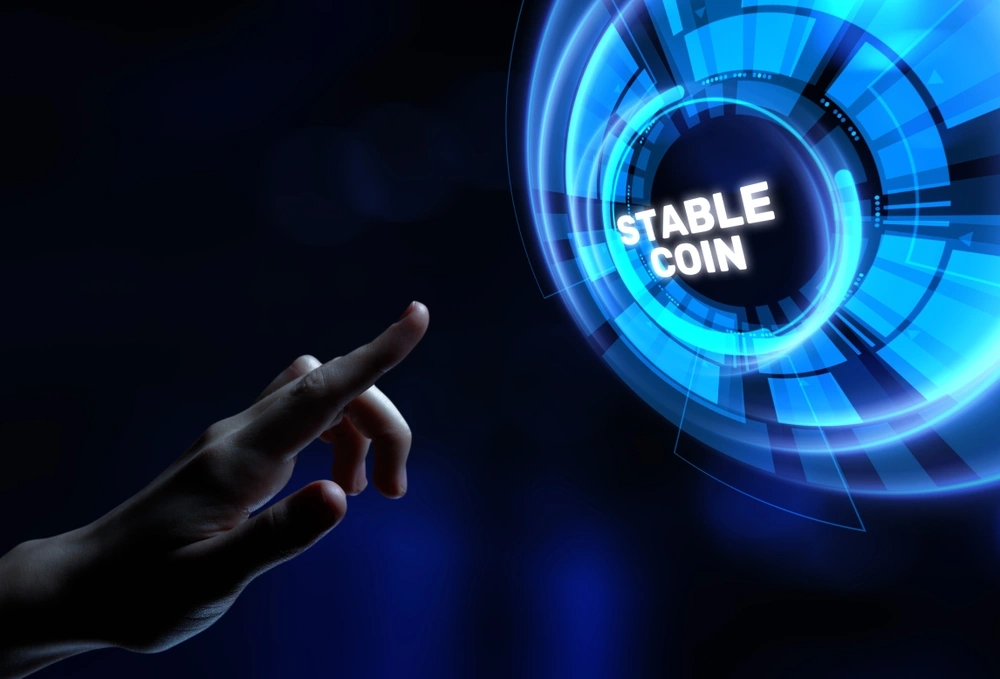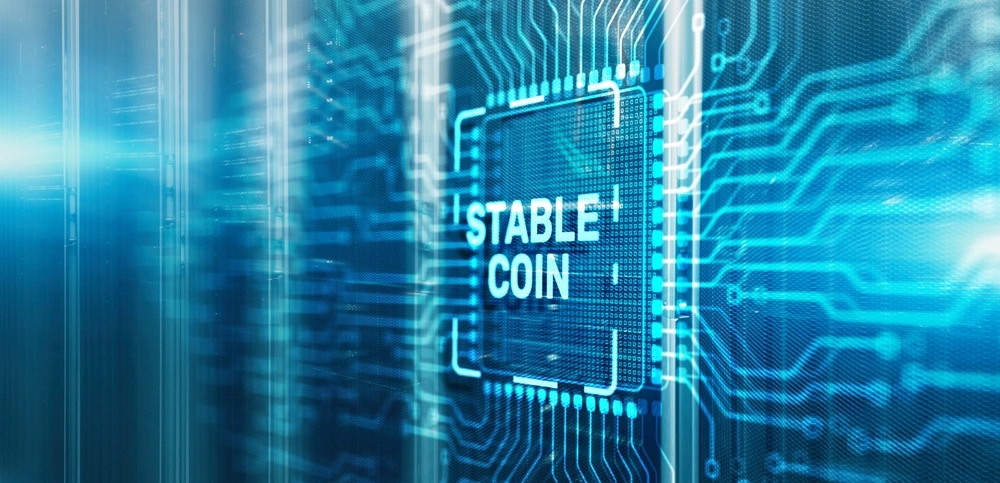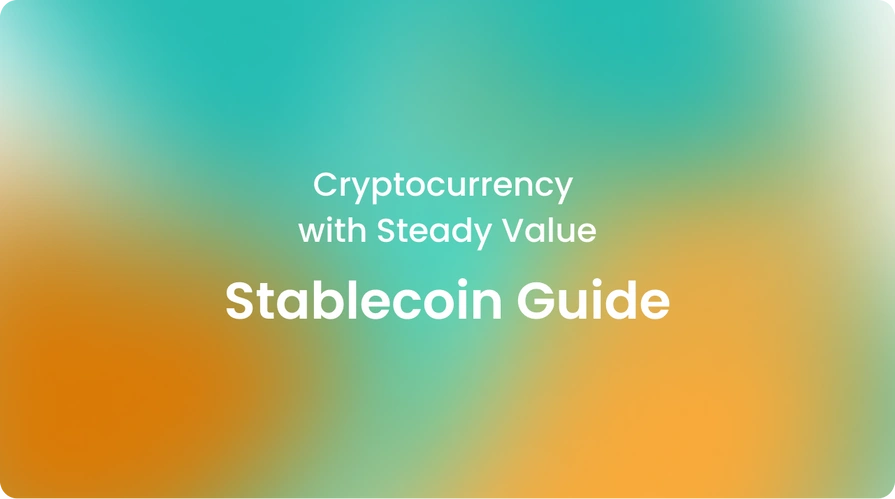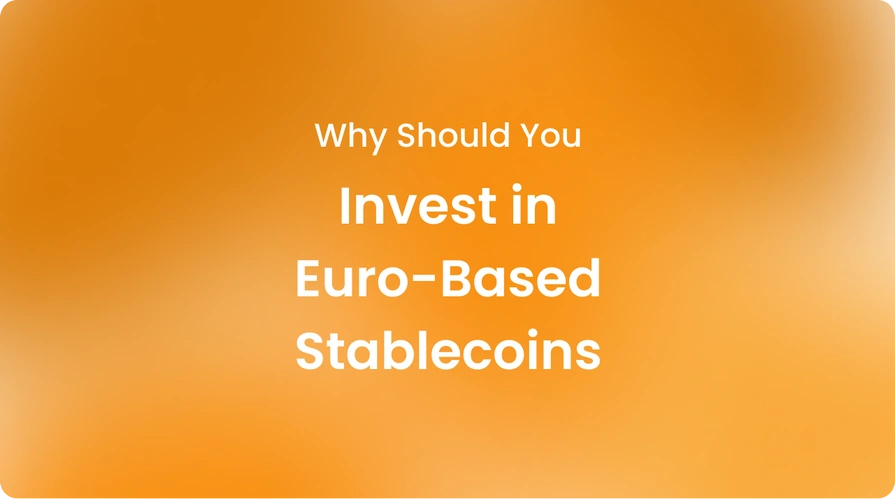|stablecoins, knowledgehub
How Do Stablecoins Work?
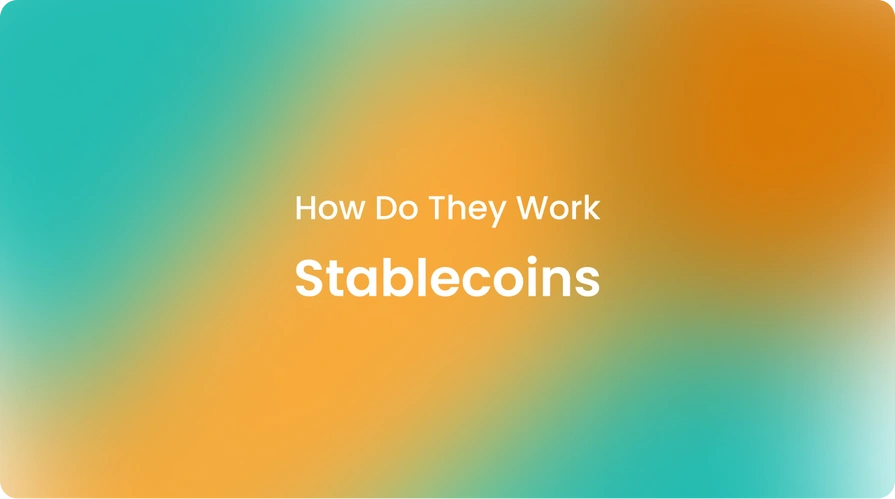
Have you heard about stablecoins but aren't sure what they are or how stablecoins work? In this blog, we'll break down everything you need to know about stablecoins.
We will explore how they operate, the main types, their uses, advantages, and risks. By the end, you'll have a clear understanding of stablecoins and whether they could be right for you.
Stablecoins aim to maintain price stability by pegging their value to an external asset, such as fiat currencies or commodities like gold. Most stablecoins have a 1:1 exchange rate with their target asset, meaning 1 dollar of a stablecoin will always be worth $1 USD.
To maintain this peg, stablecoin issuers hold reserves of the asset they track, like fiat currency, to back each coin in circulation.
Cryptobunq is a crypto-friendly digital bank offering various services in crypto and blockchain, including the issuance of euro stablecoins like EURK, which is a 1:1 backed euro stablecoin by real cash in trusted bank reserves. Before going further in EURK, let’s explore the types of stablecoins!
What are the types of stablecoins?
There are four main types of stablecoins: fiat-collateralized, crypto-collateralized, non-collateralized algorithmic, and commodity-backed. Fiat currencies held in reserves serve as the backing for fiat-collateralized stablecoins like EURK.
Crypto-collateralized stablecoins are overcollateralized with other cryptocurrencies, which maintain their $1 peg through smart contracts. Lastly, precious metals, rather than fiat, serve as collateral for commodity-backed stablecoins.
Cryptobunq offers custody and wallets, exchange APIs, EURK stablecoin, batch payments, and many more. One-stop crypto service provider CBQ issues and audits EURK, a securely audited stablecoin with reserves in Switzerland and the Dominican Republic.
How are stablecoins used?
Stablecoins see the most usage in crypto trading, crypto payments, and decentralized finance (DeFi). Due to their stability, crypto traders often use stablecoins as a bridge between fiat and other cryptocurrencies. TheEURK stablecoin offers transparent transactions that are fast and secure.
Businesses accept stablecoin payments due to lower volatility and transaction fees compared to cryptocurrencies. DeFi projects rely on stablecoins as a crypto-based store of value where they underpin lending, borrowing, liquidity in stablecoin provision, and more.
Cryptobunq is a one-stop shop for crypto. You can integrate with Cryptobunqand start using our wide range of crypto solutions that are beneficial for your business, including EURK.
As a euro stablecoin, EURK provides fast, secure, and easy cryptocurrency exchange and payment solutions for users and businesses.
What are the advantages of stablecoins?
Compared to traditional currencies, stablecoins offer several advantages for users and businesses. Transactions using stablecoins are faster, cheaper, and more transparent than alternatives like credit cards or bank wires.
Their price stability also makes them ideal bridging assets for crypto traders. As crypto adoption grows, stablecoins enable more ways to participate without volatility risk.
Stablecoins can promote financial inclusion by giving users access to basic banking services that were previously unavailable. EURK is a securely audited, 1:1 euro-based stablecoin built on multiple blockchains and available on ERC20, empowering innovation with reliability and efficiency.
How risky is stablecoin?
While stablecoins aim for price stability, recent crashes show that risks remain. If the issuer lacks sufficient reserves, loses access to reserves, or faces a bank run, a stablecoin could lose its peg. Counterparty risks also exist if reserves aren't properly managed and audited.
Regulatory uncertainty clouds the future, and new stablecoin projects may not withstand high volatility periods. Still, top stablecoins from trusted issuers like EURK, which is securely issued and audited by Cryptobunq, are considered low-risk when managed responsibly.
Overall risk depends on the stability mechanisms, the issuer's credibility, and regulation. As EURK has multiple reserves and a secure crypto service provider behind it, it doesn't carry these kinds of risks and is accepted as a secure stablecoin.
How do stablecoins remain stable?
Issuers use different techniques to maintain a stablecoin's value. Fiat-collateralized stablecoins have complete reserve backing, frequently in a 1:1 ratio, and they can exchange coins for the underlying asset. Crypto-collateralized alternatives rely on over-collateralization and liquidations to maintain pegs.
On the other hand, algorithmic stablecoins adjust supply dynamically using monetary policies like seigniorage shares. Transparency of reserves and regular attestations help build trust that issuers can redeem coins as promised.
Following best practices mitigates risks, and diversified reserve assets increase stability during market volatility. Strong regulation and compliance also offer extra stability assurances for trusted issuers.
Will stablecoins survive?
With a crypto market cap of over $130 billion, stablecoins have already grown substantially. Their continued growth depends on further developing use cases like payments, DeFi, and digital banking while addressing risks.
Ongoing projects aim to turn stablecoins into a decentralized network not reliant on issuer solvency. Regulatory clarity could encourage greater adoption while protecting users. While new competition may emerge, like CBDCs, stablecoins establish the digital payment rails developing nations desperately need.
If properly regulated with transparent issuers, stablecoins have strong potential to become integral parts of both centralized and decentralized finance globally.
Should I keep my money in stablecoins?
Stablecoins offer an attractive savings vessel as an alternative or complement to traditional banks, especially in emerging markets lacking access. However, stablecoin savings still involve counterparty risk if reserves aren't properly managed.
Diversification across networks and blockchain ecosystems provides extra stability. Stablecoins from the most reputable and regulated issuers, like Cryptobunq, which is a secure crypto service company, provide the safest options for holding value when volatility makes other crypto untenable.
Keeping only savings you can afford to lose in stablecoins lets you benefit from the technology while mitigating risks. Overall stability depends on the specific issuer, use case, and one's risk tolerance.
Why use stablecoins instead of fiat?
Stablecoins are superior to conventional money despite having fiat currency backing. They enable borderless value transfers anywhere with an internet connection at much lower fees than wire transfers or credit cards. You can check out “cross-border payments” to explore.
They can boost financial inclusion worldwide by providing basic services that are unavailable to the unbanked. With payments, lending, exchanges, and more developing on blockchain protocols, stablecoins serve as the bridge bringing crypto's benefits to existing financial systems.
Their programmability supports ambitious DeFi experiments reimagining banking and finance. With regulation and responsible issuers, stablecoins upgrade antiquated infrastructure for a digital future.
Which is the best stablecoin?
No single stablecoin dominates the market as the “best stablecoin”. Each major player has advantages, but risks vary by issuer security levels, reserve transparency, and regulation.
EURK stands out as one of the most trusted options regulated under Swiss financial law, with fully-backed reserves held by trusted banks. Its diversified collateral lowers risk compared to some focusing solely on commercial paper.
For businesses, EURK integration with Cryptobunq provides valuable crypto banking services along with stability. Therefore, you can trust both EURK and CBQ.
Overall, consider an issuer's track record, oversight, and the stablecoin's structure to determine which matches your risk tolerance and needs best. But with continued innovation, the stablecoin landscape remains in flux. You can check “Power of stablecoins” and “Role of stablecoins” for further details.
The bottom line
Stablecoins offer compelling uses as a crypto-backed store of value and means of exchange by maintaining stable pricing against assets like fiat currencies or commodities.
Major players like EURK from Cryptobunq provide low-risk options when managed responsibly by experienced issuers committed to transparency and regulation.
While risks persist depending on projects, stablecoins have tremendous potential to advance financial inclusion worldwide and integrate cryptocurrencies more deeply into existing financial systems.
For savings, payments, or DeFi, stablecoins empower new dApps with the stability many crypto assets still lack. Their future success depends on responsible development and embracing oversight that protects users during continued growth.
If you want to adapt stablecoins into your business and need a secure crypto service provider to do it effectively and securely, CBQ is here for you. Contact us and start to benefit from our expert solutions!
